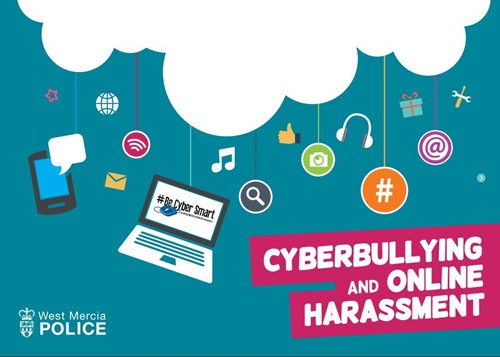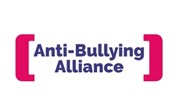More on cyber bullying
Cyber bullying is rife on the internet and most young people will experience it or see it at some time. Cyber bullying can happen 24 hours a day, 7 days a week and it can go viral very fast.
Types of cyberbullying
There are many ways of bullying someone online and for some it can take shape in more ways than one. Some of the types of cyber bullying are:
- Harassment – This is the act of sending offensive, rude, and insulting messages and being abusive. Nasty or humiliating comments on posts, photos and in chat rooms. Being explicitly offensive on gaming sites.
- Denigration – This is when someone may send information about another person that is fake, damaging and untrue. Sharing photos of someone for the purpose to ridicule, spreading fake rumours and gossip. This can be on any site online or on apps. We even hear about people altering photos of others and posting in online for the purpose of bullying.
- Flaming – This is when someone is purposely using really extreme and offensive language and getting into online arguments and fights. They do this to cause reactions and enjoy the fact it causes someone to get distressed.
- Impersonation – This is when someone will hack into someone’s email or social networking account and use the person's online identity to send or post vicious or embarrassing material to/about others. The making up of fake profiles on social network sites, apps and online are common place and it can be really difficult to get them closed down.
- Outing and Trickery – This is when someone may share personal information about another or trick someone into revealing secrets and forward it to others. They may also do this with private images and videos too.
- Cyber Stalking – This is the act of repeatedly sending messages that include threats of harm, harassment, intimidating messages, or engaging in other online activities that make a person afraid for his or her safety. The actions may be illegal too depending on what they are doing.
- Exclusion – This is when others intentionally leave someone out of a group such as group messages, online apps, gaming sites and other online engagement. This is also a form of social bullying and a very common.
Bullying by spreading rumours and gossip
The worst thing about social networking sites and messaging apps is that anything nasty posted about you can be seen by lots of people and these posts can go viral very fast and be shared by so many people within minutes in some cases.
From what we have heard from people who have been bullied online, the most vicious gossip and rumours are often spread by people who were once your best friends so it's best to keep secrets and personal information to yourself. Only tell people things if it would not embarrass you if other people found out about them. Posting false and malicious things about people on the internet can be classed as harassment.
Threatening behaviour
Anyone who makes threats to you on the internet could be committing a criminal offence. It is against the law in the UK to use the phone system, which includes the internet, to cause alarm or distress. It could also be against the 1997 Harassment Act (opens link in new window). If threats are made against you then it's essential you confide in your parents, or someone you trust so that they can make a complaint to the police. If you ca not print out the threats use the "print screen" button or snipping tool to take a snapshot of the computer screen and then save that somewhere safe. Or if you have a phone or tablet, use the screenshot function and keep these images safe.
Blackmail and grooming
We have had many complaints from young people that new "friends" online have tried to pressure them into taking their clothes off and filming or taking images of themselves. Threats have been made that their parent will be told embarrassing things if they do not take part or they will send the images to everyone they know if they do not do it.
This is an offence called "grooming" in the UK and people who have been found guilty of "grooming" have been jailed. Remember: everyone you meet on the internet is a stranger and you need to keep personal things personal to you, don't share your secrets with other people and if anyone asks you to do anything that makes you feel uncomfortable then do not do it.
We often hear of people in relationships trying to make their boyfriend or girlfriend send sexting images of themselves to prove they love them or want to be with them. It is against the law for anyone under the age of 18 to take, send or redistribute pictures of anyone under the age of 18.
When comments gets abusive
There are quite a few instant messaging apps including Snapchat, WhatsApp, Secret, Whisper and Instagram. They are a great way of sharing things with your friends and having fun. But if things turn nasty you can block people from seeing you are on line and you can save abusive conversations or print them out as evidence.
It is tempting to have a go back if someone makes a rude posting on your online space, social network or app but do not. This is called flaming and it just makes the problem worse. Abusive comments are very upsetting but the best way to deal with them is to get them removed by the website.
Inappropriate images
It is easy to save any pictures of anyone on any site and upload them to the internet. Make sure that you have the person's permission to take a picture and that they are happy for thousands of people to see it on the internet. Be wary of tagging and hashtags as this will send the picture out to a wider audience then you may have originally intended.
Do not upset people and then upload their pictures for other people to have a laugh. That could be harassment. Do not digitally alter pictures of people either because what you think is funny may be offensive to other people. Do not let anyone take pictures of you that might embarrass you.
Innocent bystander
There is no such thing as an innocent bystander and if you have seen someone being bullied online, you can report it to the online site or app. Ignoring it may feel like the easiest thing to do but the person who is being subjected to that bullying may need your help and support to get it stopped. Most sites now have a report button which is something you can do and this will send the bullying comments to the site to investigate.
Tips and advice
-
If you post abuse about anyone else online or if you send threats, you can be traced by the police without any difficulty. Every time you visit a website or make a posting, your internet service provider, Sky, BT or Virgin, has an electronic note of your activity. Even if you create an anonymous email address like Gmail, Hotmail or Yahoo, you can still be traced.
-
Keep safe by using unusual passwords. Use a combination of letters, lowercase, uppercase, symbols and numbers. Do not use any part of your name or email address and do not use your birth date either because that is easy for people who know you to guess. Do not let anyone see you signing in and if they do, change the password as soon as you can.
-
If you are using a public computer such as one in a library, computer shop, or even a shared family computer, be sure to sign out of any web service you are using before leaving the computer so that you can protect your privacy.
-
Being bullied online can affect someone enormously. Being bullied can impact on a person’s self-esteem, confidence and social skills. We have supported people affected by this type of bullying, and in many cases they have had to leave school, work and social networks to escape bullying. Try to consider the impact your words may have and think twice before posting.
-
Think twice before you post anything online because once it is out there you can not take it back. It is easy for any comments or posts you make online to be taken out of context and these could be damaging to you in the long term.

West Mercia Police have also put together a guide on cyber bullying (opens link in new window).




